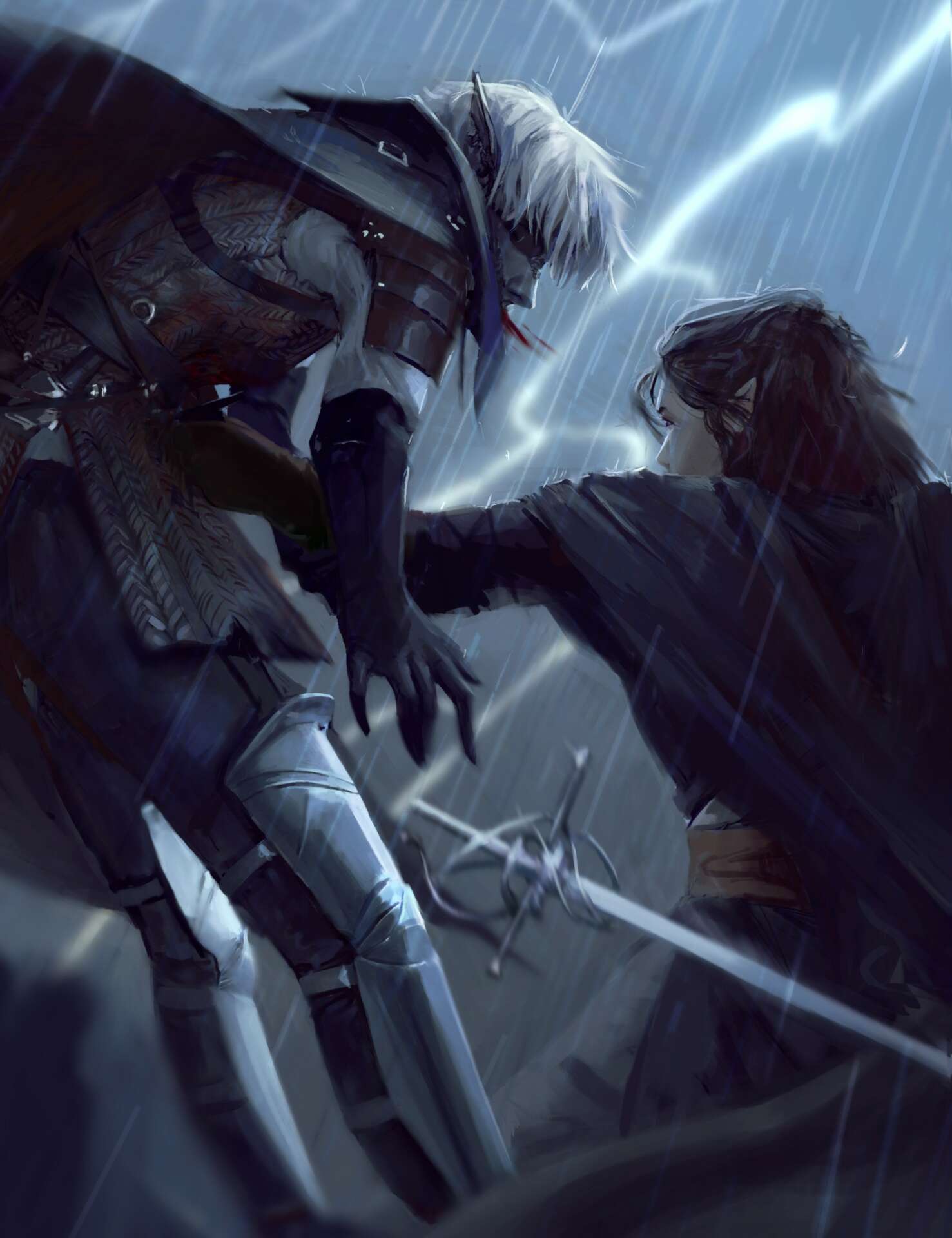We caught up with the brilliant and insightful Erin Petersen a few weeks ago and have shared our conversation below.
Erin, thanks for taking the time to share your stories with us today The first dollar you earn is always exciting – it’s like the start of a new chapter and so we’d love to hear about the first time you sold or generated revenue from your creative work?
My experience making an income from my passion started when I was still in college. Opening commissions was something I had considered for a long time, but I’d never felt ready to take the initiative. I was still waiting for my skills to improve, but soon I realized that, no matter what I did, I would never feel ready. Even as I saw my art improving, I still felt intimidated by the prospect. So, despite my doubts I gathered my favorite works, set some prices, and put together a modest commission sheet. Now with a few years experience of freelance work, I would say to artists thinking about making a commission page to not let the fear of inexperience keep you from starting. Don’t worry about your current skill level, you will lose nothing by putting your work out there. You will not be punished for having “bad art” and there are plenty of ways to learn what standard commission options look like. Before I opened commissions I did research on the artists I admire, checking how they priced their base options as well as possible fees from bonus content such as backgrounds, additional characters, accessories, and more. Doing this helped me feel confident in the choices I was making for my own commission system.


Awesome – so before we get into the rest of our questions, can you briefly introduce yourself to our readers.
Hi, my name is Erin Petersen and I’m a freelance illustrator and game artist. Though my private commissions have been closed as of late, I do take commissions for character illustration and design. Lately however, I have been occupied at my studio job, creating visual art and animations for slot machines. I love the variety of work I get to experience, but my true passion is fantasy art and storytelling. Outside of work, my creative outlet is sharing stories with my friends through ttrpgs.
I first started on my art journey in college. I spent my first two years at community college before transferring to Columbia College Chicago, just in time for Covid 19 to strike. Going to school through quarantine was hard, but I was determined to make the most of it. The support from the faculty and my family helped me push through even when I was doubting my abilities and the worth of my art. Now on the other end, I’m so glad I did. I graduated with my BA in Illustration and started my job as an Associate Game Artist. I’m still working in gaming, picking up new skills in animation and 3D modeling. I love that I’m still learning, developing into a more well-rounded and knowledgeable artist.



What can society do to ensure an environment that’s helpful to artists and creatives?
The best thing society can do to support creatives is to respect our work like the trades that they are. I think there is a lot of disrespect from non-creatives who want to be surrounded by art, but don’t understand the worth of it. They don’t know the effort that goes into it, the time, knowledge, and energy.
Art is not an innate skill someone has. I see this mentality out there that art is easy. That, because people take joy in it, it is simple work that anyone can do and not a skill that you have to pour effort into to improve. If society respected the creative trades a bit more, it would encourage us to look into several issues I think creatives struggle with, such as art education and funding for the arts in schools, receiving livable wages for our work, and more. The respect society has for the arts seems to dwindle by the year. In order for anything to improve our collective attitude for the arts needs to improve first.



Any insights you can share with us about how you built up your social media presence?
Building a presence on social media is constant yet slow progress. I attribute my major growth to establishing a focus in subject matter that I was passionate about. I’ve always loved drawing characters and I eventually found myself in ttrpg communities, taking commissions for clients’ original characters. Posting these commissions along with the art I made of my own characters helped me build a body of work that told my audience what my focus was just from a glance at my Instagram. People that also appreciated fantasy and character art would know I was a reliable source of content and would be more likely to follow rather than if I was an eclectic artists that did a bit of everything.
On the other hand, it is also important to stay up to date on what media has a current following. My presence on social media got kickstarted by sharing fanart. Making art for popular shows and games I loved helped me connect to people of similar interest. When I eventually started to shift and narrow my focus, a lot of them followed me on my journey and continued to be a supportive audience for my new projects. The more relevant fandoms you contribute to, the better chance your art finds an audience that can connect to it. What’s truly important, however, is finding ways to tie your fanart back to you and your art focus.
Contact Info:
- Instagram: https://www.instagram.com/eriecanary/
- Other: Tumblr: https://www.tumblr.com/blog/canarydraws Artstation: https://www.artstation.com/eriecanary
Image Credits
All images illustrated by myself


